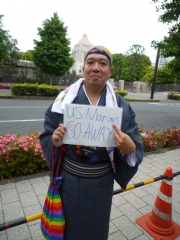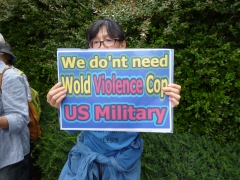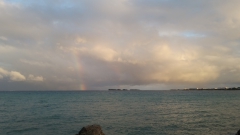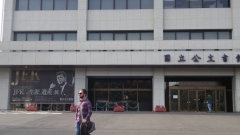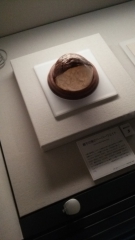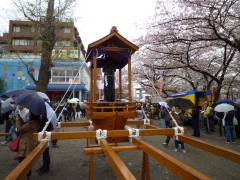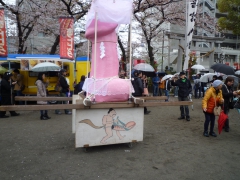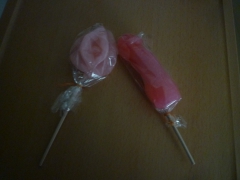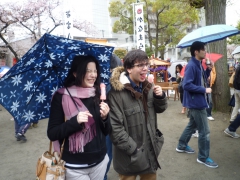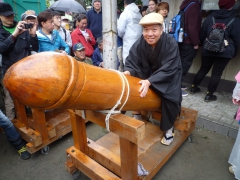01 June 2015
Film "Pride" The oppressed united
I just happened to know this film while participating in Tokyo Pride Parade event.
It was British movie. The Japanese title was "Parade e Yokoso (Welcome to the Parade)"
The story is based on facts. In 1980's coal miners did strike against Thatcher adminisitration's policy to close down unprofitable mines.
Gay activists in London launched fund-raising campaign named "Lesbians and Gays support miners."
At first they were not accepted by miners' community but later on both sides understood significance of corporation getting over the difference. Like one of important characters said "You support us so we support you."
In the end, miners joined gay parade to show solidarity with the activists.
The both oppressed communities got united to help each other.
I recently came up with the idea of new novel using the concept of unification among oppressed communities. Gays are not the only oppressed but women, disables, and recently those who are fearing new foreign military base construction in their local prefecture, Okinawa, Southernmost prefecture of Japan. For details, please read the articles tagged Okinawa in this blog.
The mining town in the film was in Wales. It was several hour drive from London but very different culture and people exist, even language is different. One different tribe in one nation. That thing is very much like Okinawa.
I kind of do the similar action to the film, helping that prefecture people. On 24 May 2015 I joined protest activity such as human-chaining demonstration around Japan's Diet building in order to show solidarity with them.
Last year I saw the rainbow on the construction area. It appeared from the sea. The construction project is reclaiming the beautiful coral sea. It was on the same day after I attended Okinawa's gay pride event.
Well, it seems another oppressed ones got united helping each other for the better future.
Just my fantasy?
22 April 2015
Dear Fellow Americans, JFK Exhibit is held in Tokyo
I went to the exhibition of John Fitzgerald Kennedy at National Archives of Japan located near the Imperial Palace in Tokyo.
I went there with one old American couple whose young days were when JFK were alive as US President. They told me that the assassination was shocking to them because he was very popular at that time.
The admission was free. It has been held since early March and is scheduled to end May 10, 2015. The description of exhibits are mostly Japanese. So I explained to them what each one of exhibits was about. Actually they knew what they were because those things were very familiar with them already.
I focused on one corner. The exhibits that relate to his relationship with Japan before he became a politician.
A cononut paperweight and a letter to former enemy.
These things come from his war-time experience in Solomon islands, Southern Pacific 1943. JFK was on torpedo patrol boat with his crews at night. The boat was hit by Japanese naval destroyer, Amagiri and sunk. JFK and his men were all thrown out to the sea but they swam to one island. There they met locals. JFK asked them to deliver a coconut which the message of calling for help was written on to the US military corp. Then he and his men were all saved. By that incident JFK was awarded medals.
After the war, JFK made the coconut into paperweight as a memorial. JFK wrote the letter to former captain of the destroyer, Hanami telling him that he wanted to meet the captain because yesterday’s enemy turned today’s friend. Later JFK invited him to his presidential election campaign. The captain could not go to the US but his best friend, Onozaki, who was also a crew of the destroyer went. The photo that Onozaki and JFK together were printed out in newspapers in US that might help JFK win the election.
He might have felt saved by the Japanese military. I speculate that the enemy did not shoot at them though they found them in the sea or even gave them a rescue boat or some way to save their lives?
JFK to me has weird relation. When I was in US two decades ago as a college student, some of my classmates said to me that I look like JFK. I was glad to hear that.
I remember when I went to Arlington cemetery in Washington, I could come to his grave without knowing the route, seemed like he invited me.
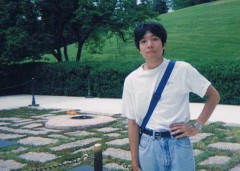
He and I have things in common. I am Catholic and have back pain problem from young days still struggling with it some time. He and I are very much interested in civil rights advocacy.
The memorable thing I saw in the exhibit was his speech film on Civil Right Act in relation to Alabama state’s defiance to Federal court order to admit Afro-American students to its state university.
He said,
“We preach freedom around the world, and we mean it, and we cherish our freedom here at home, but are we to say to the world, and much more importantly, to each other that this is the land of the free except for the Negroes; that we have no second-class citizens except Negroes; that we have no class or caste system, no ghettoes, no master race except with respect to Negroes?
Now the time has come for this Nation to fulfill its promise. The events in Birmingham and elsewhere have so increased the cries for equality that no city or State or legislative body can prudently choose to ignore them.
The fires of frustration and discord are burning in every city, North and South, where legal remedies are not at hand. Redress is sought in the streets, in demonstrations, parades, and protests which create tensions and threaten violence and threaten lives.
We face, therefore, a moral crisis as a country and as a people. It cannot be met by repressive police action. It cannot be left to increased demonstrations in the streets. It cannot be quieted by token moves or talk. It is time to act in the Congress, in your State and local legislative body and, above all, in all of our daily lives.”
That speech sounds like current President Mr. Obama’s endorsement on gay marriage.
After a half century, a new type of civil rights movement seems to be on. The same rhetoric are used for both pros and cons. Majorities vs. Minorities. Conservatives vs. Liberals.
Federal protection law to ban discrimination based on sexual orientation and gender identity has been on debate.
Just like that State of Alabama rejected court order to provide marriage licenses to gay couples.
That is why Obama is called, Black Kennedy. He succeeded JFK’s will to protect civil rights.
Interestingly enough, unlike race matter, sexual orientation matter is common worldwide. So America can be a good role model for this issue.
In relation to it, this coming weekend April 25 & 26, 2015, Tokyo celebrates gay pride event in Yoyogi Park that includes street parade. I will actually join it. Last March one ward of Tokyo, Shibuya passed an ordinance that provides partnership certificate to gay couples. The first political accomplishment in Japan’s gay movement.
Japan’s public opinion regarding gay issue has recently changed.
According to the recent poll conducted by Mainichi Newspaper, majority of Japanese support gay rights, especially among younger generation. More people approve of gay marriage than those who oppose it.
Is it due to what has happened recently in the U.S. ?
Good role model. Hope US keep being good role model for us.
Since I think of JFK, there are 3 songs that come up with. The songs released in the year he was assassinated. Did he hear the songs and enjoy them?
One is related to civil rights movement, "Blowing in the wind", one implies coming of Vietnam war, "Green Green." The other implies the oppression I am facing with many other people regarding US policy which current US Ambassador to Japan, Caroline Kennedy (JFK’s daughter) has to deal with.
15:16 Posted in Japan News, Music, Politics, Tokyo Life, US-Japan relationship | Permalink | Comments (0) | Tags: history, jfk, war, homosexuality, gay, lesbian, college days
08 April 2015
Festival of Japan's very original free sex culture
Last Sunday, I went to Kanayama Shrine in Kawasaki city in Kanagawa Prefecture, neighboring prefecture to Tokyo. Over there held annual festival named Kanamara-Matsuri.
I saw very surprising scenes. The giant symbols of male genitals are exhibited.
They are the things worshiped for centuries at the shrine.
The festival was to pray for the health of people, especially to avoid sexual transmitted diseases.
The symbols were to be carried outside the shrine and to be exhibited on streets in the town.
They are portable shrine, so called Mikoshi.
Not just Mikoshi, there sold candies whose shapes were like the genitals of female and male.
One third of spectators were foreigners although this place is not known as major tourist spot but it seems known as Japan's unique culture.
It is very unique taking Japan's conservatism into account. Japan is also very modernized and industrial state.
Then why such festival is held.
It is because that was Japan's very original culture before modernization in late 19th century, before westerners came to educate us to be "civilised." That was westerners who changed our attitude towards sex. Since then, sex has been treated as an indecent matter that we should avoid talking about.
Now westerners are campaigning free sex and praising Japan's native culture that has been forgotten.
The priest of the shrine claimed that significance of the festival is to know that you are living life. If not, one could never come to the festival.
It is not indecent thing but rather we should worship as humans.
18:14 Posted in Culture, Health, Japan News, Society | Permalink | Comments (0) | Tags: sex, history, shrine, tradition
15 February 2015
Film"The Butler" Is that a story of Barak Obama?
A story of a man whose father was shot in front of him on the cotton field by a white farmer and later became a house servant of the farmer and then hotel servant and finally was hired by the White House.
It is a fiction but it is based on a real butler who served the White House from 1950's Eisenhower until Reagan's administrations.
It was like Black history of America.
How Black people struggled with the oppression and finally be honoured by the society.
Maybe Obama should have experienced similar things.
In order to change the society, people need to be not only brave but also clever. You cannot just fightback. You might have to get along with majority of the society regardless of their unfair treament of you.
It is a fiction but surprising thing was even in the White House, Afro-Americans were discriminated in salary and positions. It was fixed after Reagan's administration 1980's.
I like that part of America's history, not interested in founding fathers.
It is common with current event happening in Okinawa, Japan.
Because of that, America is no longer my favourite nation.
I can only feel mutuality with the oppressed Afro-Americans who lived in the past.
11:36 Posted in Film, Japan News, Politics, Society, USA issues | Permalink | Comments (0) | Tags: okinawa, racism, history






